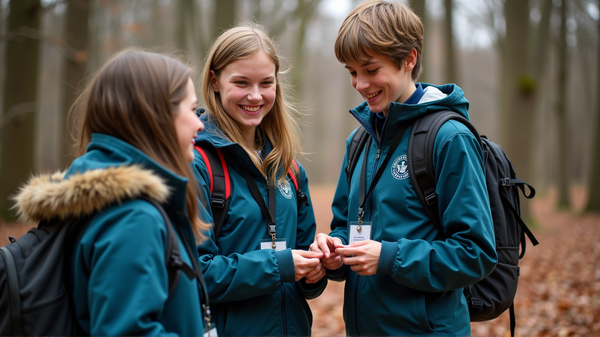Empowering Communities Through Community-Based Education (CBE)
In today’s rapidly changing world, education is evolving to meet the needs of both learners and society. Gone are the days when classrooms existed solely within four walls, focusing exclusively on textbooks and examinations. Community-Based Education (CBE), and specifically Community Service-Learning (CSL), is revolutionizing the way knowledge is acquired and applied.
Bridging Academics and Real-World Challenges
Community Service-Learning is a progressive educational approach that marries theoretical learning with practical experience. Unlike traditional community service, CSL is intertwined with academic curricula, allowing students to apply classroom concepts to societal challenges. This experiential method fosters a deeper understanding of academic content while promoting civic responsibility. For example, students learning about environmental science might engage with local conservation projects, experiencing firsthand the impact of their academic pursuits.
The Power of Reflection
One of CSL’s core elements is reflection. It’s not enough for students to engage in service; they must also reflect on their experiences to derive meaningful insights. Through guided discussions and reflective journaling, students connect their service efforts with academic theories, fostering critical thinking and empathy. This reflective practice transforms service from a simple task to a profound learning journey that encourages lifelong learning habits.
Building Community Partnerships
For CSL to thrive, schools must cultivate partnerships with local communities. When educational institutions collaborate with community leaders and organizations, they co-create service projects that address genuine needs. These partnerships ensure that initiatives are both meaningful and sustainable, benefiting all parties involved. A university collaborating with a rural health clinic to design outreach programs exemplifies this mutually beneficial relationship.
Fostering Student Leadership
CSL projects offer students a platform to develop leadership skills by taking initiative in the planning and execution of service activities. As students navigate real-world responsibilities, they cultivate resilience, teamwork, and problem-solving abilities. This empowerment goes beyond academics, preparing learners to become proactive leaders in society.
Transformative Impact
The effects of CSL are profound and far-reaching. For students, it bridges the gap between theory and practice, making learning more engaging and relevant. CSL equips learners with essential skills such as collaboration and critical thinking, while also instilling social responsibility. Many students find CSL experiences transformative, providing a clear sense of purpose and personal growth. Meanwhile, communities gain invaluable support in addressing local challenges, fostering a symbiotic relationship that extends beyond the classroom.
Redefining Education
CSL reimagines the purpose of education by integrating civic values and social engagement into the learning process. It aligns with global aspirations, such as the United Nations Sustainable Development Goals, promoting quality education, equality, and sustainable communities. CSL ensures that learners graduate with not only theoretical knowledge but also practical experience and a commitment to societal contributions.
Education, through initiatives like CSL, becomes a collaborative effort between schools and communities, knitting a fabric of mutual growth and understanding. By embedding service into education, schools transcend traditional boundaries, preparing students to lead and innovate in an ever-evolving world.
By Ashford Kimani
Ashford teaches English and Literature in Gatundu North Sub-county and serves as Dean of Studies.




